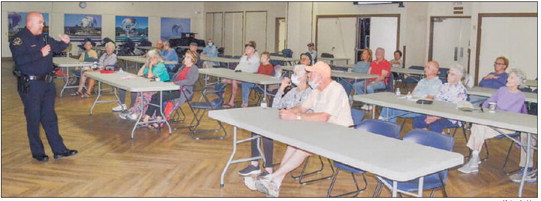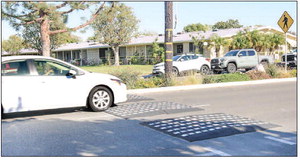New Year’s resolutions can help reset wellness goals
The new year often means the season of celebration and resolutions. There is no better time to set new wellness goals and make health a priority.
• Get enough sleep. Older adults should aim for seven to nine hours of sleep to maintain healthy immune system and improve memory and concentration. Keep the bedroom cool, comfortable and quiet; go to bed and get up at the same time every day and avoid long naps; stay active during the day and check with your physician to see if any of the medications or medical conditions affect your sleep.
• Eat well and stay hydrated. Focus on consuming fruits and vegetables, whole grains, nuts, and low fat dairy. Limit the consumption of fatty meats, sugar, butter, salt, and pre-packaged foods. To stay hydrated, keep a bottle of water nearby and take frequent sips throughout the day.
• Stay social. The importance of social interaction for older adults cannot be overstated. Loneliness is known as a silent killer for seniors. Stay connected with family members and reach out to your friends.
• Use your brain. Experts suggest staying sharp with mindbending puzzles like crossword and sudoku. Other activities like reading, writing, and trying a new hobby can help ward off a decline in mental health.
• Exercise. Staying physically active is one of the best new year goals. Studies show that regular exercise has many benefits for seniors, including: weight management, alleviation of depression, strong bones and muscles, better sleep, improved balance and fall prevention, and decreased risk of heart disease, type 2 diabetes, high blood pressure and high cholesterol. Aim for at least 30 minutes of exercise per day. Low impact activities such as biking, walking, Tai Chi, water aerobics, and yoga are popular exercise options for older adults.
• Practice prevention. Focus on preventative health measures: schedule your annual physical exam, get vaccinated against common viruses, manage your medications and wash your hands frequently.
• Kick bad habits that may have serious health issues attached to them.
• Maintain purpose in life. Make an effort to manage the stress, relax, and focus on spiritual growth, and not on the perceived limitations of aging. Stay connected with the purpose by keeping a gratitude journal, volunteering, surrounding yourself with other positive people, setting reasonable expectations for aging.
• Evaluate home safety for fall hazards such as blocked walkways, cluttered high traffic areas, slippery, loose rugs, food spills, stairs, adequate lighting and the need for assistive devices.
—MetroCreativeConnection


